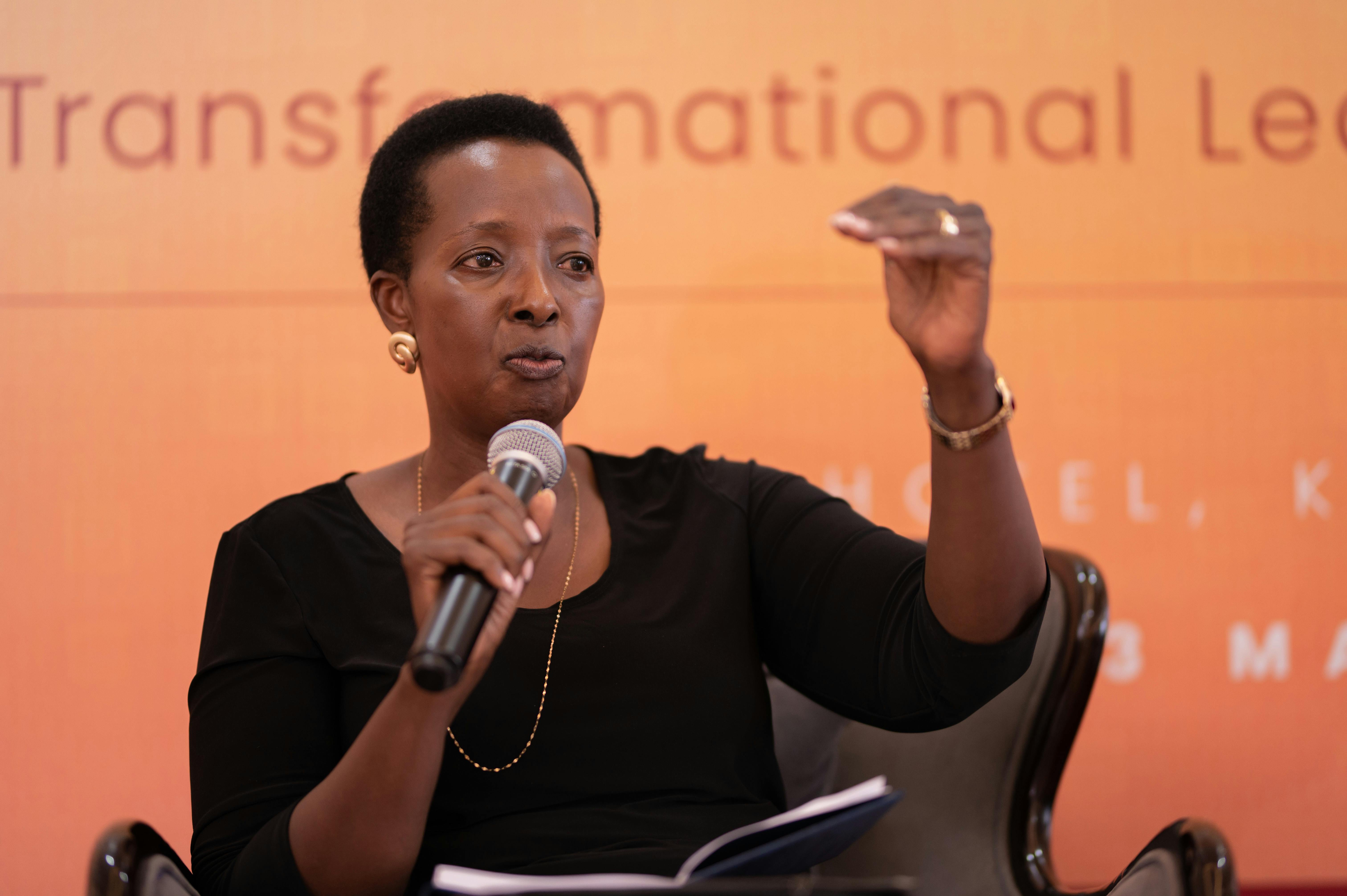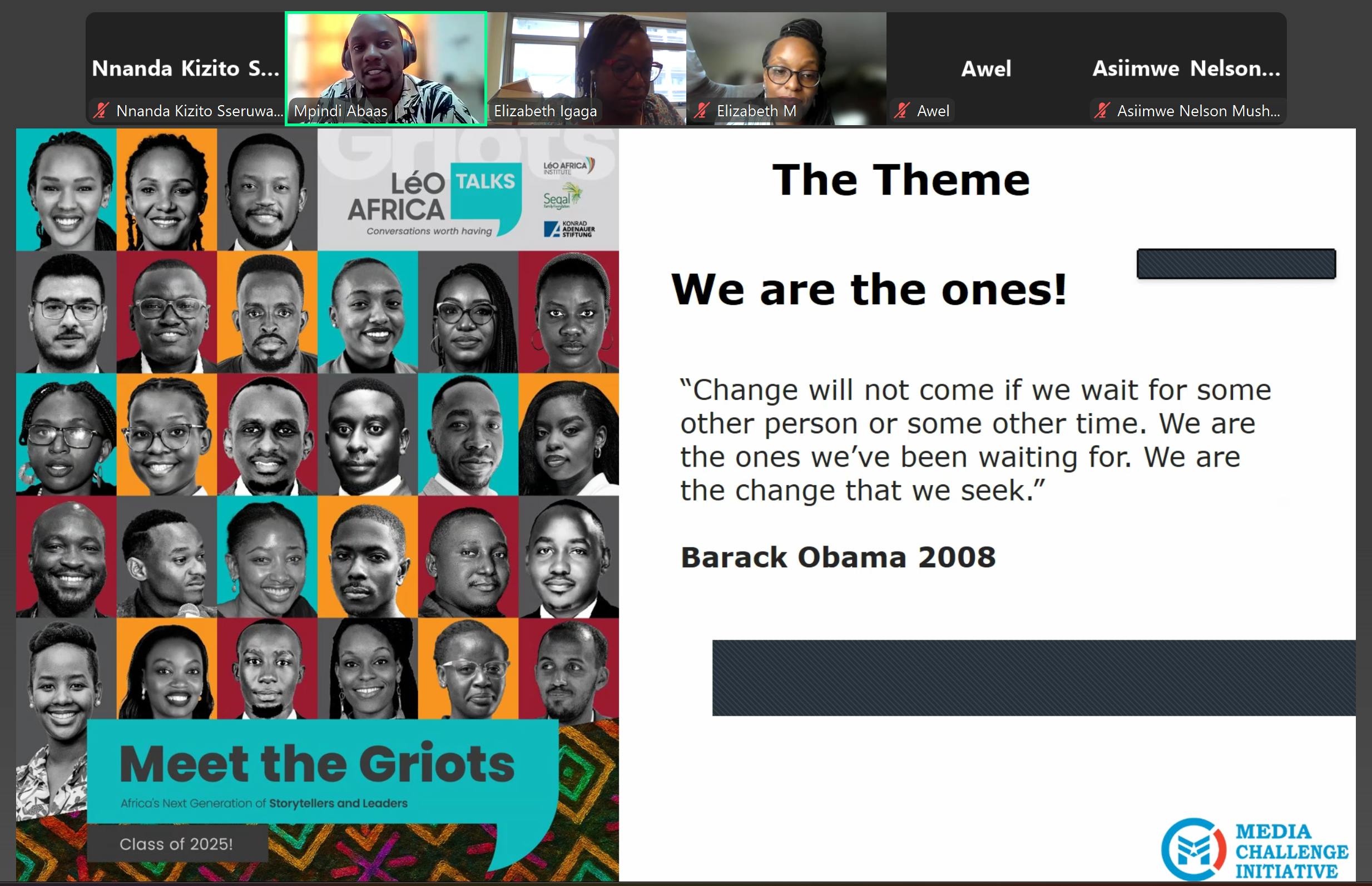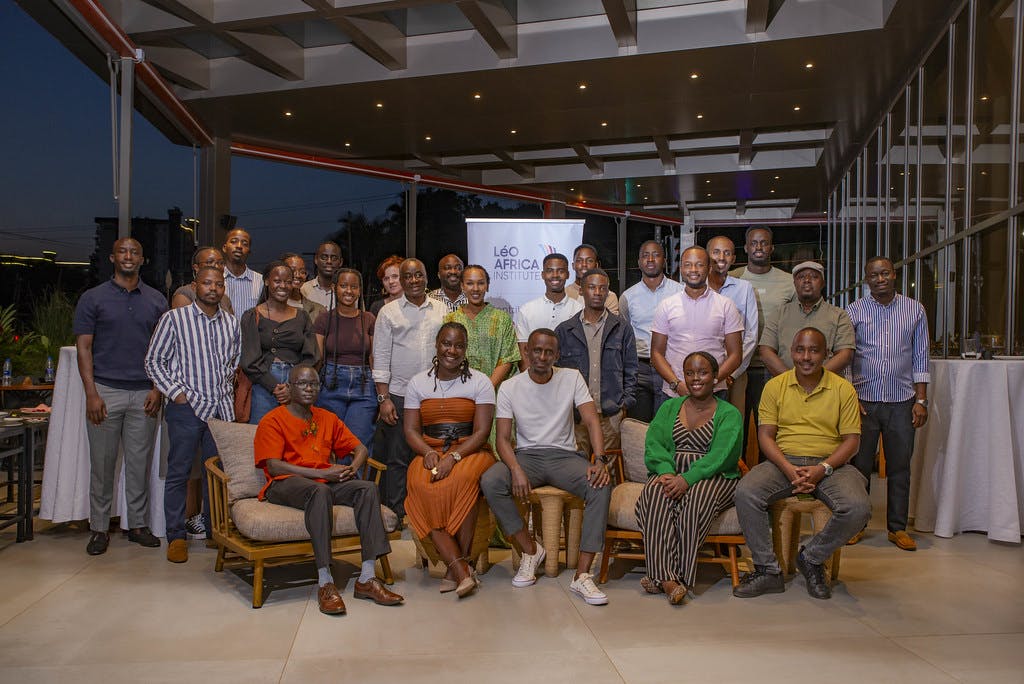By Allen Kagina
Good morning, Huduma Fellows, alumni, and friends.
It is a sincere honour to join you today.
Thank you to the LéO Africa Institute and the Konrad Adenauer Stiftung for your kind invitation, and for your continued investment in the Huduma Fellowship—a thoughtful initiative that reminds us that leadership, at its best, is a call to serve others with integrity. This is more than a fellowship; it is a quiet revolution in the making. The Institute has courageously taken on the mission of shaping a new generation of leaders—those who lead not with self-importance, but with awareness; not with entitlement, but with empathy; not with noise, but with noble purpose. In a world that often rewards spectacle over substance, LéO Africa is nurturing a different kind of leadership—one grounded in values, dialogue, service, and integrity. This work is vital for Uganda, for Africa, and for the world. You are building a fellowship of leaders who will not just occupy office, but transform it—who will not just inherit institutions, but reimagine them for the public good.
As I look around this room, I am reminded of the great potential that exists within our nation. I see individuals committed to building better institutions, stronger communities, and a more just society. Today, I hope to share a few reflections from my journey—lessons drawn not from theory, but from lived experience. My intention is not to impress you, God knows there have been many ups and downs but simply to encourage you as you continue to lead in your respective spaces.
Part I: Service is a Privilege, Not an Entitlement
One of the most meaningful truths I have come to understand in leadership is that it is not a right, but a responsibility. Leadership is a form of stewardship—always temporary, always entrusted.
In public service, it is easy to slip into the mindset that our roles define us. But at every step—whether at URA or UNRA—I tried to hold onto the idea that I was a custodian, not an owner. Our duty is to serve with diligence, and to remember that the trust placed in us is never guaranteed, and never permanent.
The moment we begin to feel entitled to the positions we hold, we risk losing sight of the people and purpose we were meant to serve.
Values-Based Leadership in a Politicized Environment
Leadership within public institutions is a journey of competing interests, shifting political dynamics, and often, intense scrutiny. It is not uncommon to feel like you are being pulled in all directions all at once. Navigating the so many demands requires more than technical expertise. It calls for clarity of values.
During my time at the Uganda Revenue Authority, we initiated far-reaching reforms. At face value, it was about improving systems and increasing tax compliance. But beneath the surface, we were confronting something much deeper: a culture of entrenched inefficiencies, corruption, institutional fatigue, and networks of influence that resisted change.
The work was not easy. Resistance came in many forms—passive, structural, and at times, personal. But it was in those moments that I was reminded of why values matter. Without a strong compass, it is easy to be swayed by what is expedient, or what will win you temporary approval. But true transformation demands steadiness. It demands moral clarity.
Values like integrity, fairness, and accountability are not theoretical. They must be translated into daily decisions—how you allocate resources, whom you hire, how you respond to pressure, and how you treat the people under your leadership. These are the moments that define whether your leadership builds or breaks trust.

I often had to make unpopular decisions—whether it was holding individuals accountable, ending corrupt practices, or resisting undue influence. I did not always get it right. But I tried, each day, to act in a way that I could explain with honesty and sleep with peace.
In politicized environments, the temptation to compromise is real. And there will be moments when you are misunderstood, isolated, or even targeted. But leadership is not about preserving comfort—it is about stewarding trust. And trust is built when people know you will stand for what is right, even when it is hard.
I want to encourage you to make integrity a habit, not just a statement. Let your values shape your decisions, not your circumstances. In the long run, even in complex systems, values-based leadership leaves a legacy of credibility and impact.
Part III: The Leadership Transition from UNRA
In December 2024, as many of you may know, the Uganda National Roads Authority (UNRA) ceased to exist following the repeal of the UNRA Act. This was part of a broader government policy of rationalization, through which various agencies were either merged, restructured, or absorbed into ministries. For UNRA, this meant being mainstreamed into the Ministry of Works and Transport.
Having served at UNRA for close to ten years, the announcement marked the end of a significant chapter in my public service journey. Understandably, such transitions bring mixed emotions. There is a sense of closure, of letting go. But there is also an opportunity to reflect on the deeper purpose of service.
For me, it was never about the institution or the title. It was about the mission—the work we were entrusted to do and the people we served. As Executive Director, I was simply a steward for a season. And when that season ended, I stepped aside with gratitude—grateful for the lessons learned, for the teams I worked with, and for the chance to contribute to the development of our nation’s infrastructure.
Leadership means when the season ends, exit with grace, confident that others will build upon the foundation you helped lay. That is the nature of stewardship—it begins with trust and ends with accountability.
Part IV: The Role of Women in Building Institutions
Let me take a moment to speak especially to the women here today.
Throughout my career, I often found myself in spaces where women were underrepresented—sometimes the only woman at the table. Early on, I realized that this wasn’t something to be intimidated by, nor was it something to wear as a badge of distinction. It was simply the reality of the work environment. And so, I made the decision to focus on doing the work well, to bring competence, not just presence, to the table.
Women have a vital role to play in shaping public institutions and strengthening governance. We bring a perspective that is informed by community experience, by caregiving, and by resilience developed in the face of adversity. These qualities—far from being soft—are essential for building institutions that are ethical, responsive, and people-centered.
That said, entry into leadership is not the end goal. What truly matters is how we lead once we are there. We must commit to learning, to working twice as hard when necessary, and to building credibility through action, not just identity.

To those coming after us, we must also extend a hand. Let’s mentor, support, and open doors for younger women aspiring to serve. Our success must never become a ceiling—it should be a platform for others to rise.
Let us continue to challenge systems that exclude, but do so with a spirit of excellence and integrity. The path may not always be easy, but it is worth walking. When women lead well, societies thrive.
Part V: Faith, Family, and Resilience
No matter how strong our qualifications or how well-prepared we think we are, leadership will test our inner strength. It brings moments of decision, of solitude, and sometimes, of doubt.
In my own experience, especially during challenging seasons, it was my faith that grounded me. I drew strength from Scripture, from prayer, and from the quiet conviction that I was not walking alone. Faith helped me remember that leadership was not about me—it was about something larger. It reminded me to lead with humility, to seek wisdom, and to rely not only on my own understanding.
My family also played an irreplaceable role in keeping me anchored. They reminded me of who I was beyond the title or the position. They reminded me of the importance of presence, of laughter, of shared moments that leadership demands often try to steal. In the whirlwind of public life, it is those close to you who help you remain whole.
I will not pretend there were no difficult moments. There were days of discouragement, nights when I questioned whether I had done enough or made the right decisions. But through it all, I learned that resilience is not about being unshaken—it is about rising again and again, and choosing to continue with integrity.
I want to encourage each of you to nurture your inner life. Guard your well-being. Honour your relationships. Reconnect often with the values that brought you into leadership in the first place. Public service can be demanding—but it should never cost you your soul.
We must not lose ourselves in the work. It is from a place of inner strength, balance, and clarity that we serve best.
Part VI: Transition
As I transition from decades of public service into a new season of leadership through Cornerstone Consulting, I find myself reflecting on a deeper question—one that has echoed through each chapter of my journey: What truly matters in the end?
I have been privileged to lead institutions at critical moments in their growth—first as Commissioner General of the Uganda Revenue Authority, and later as Executive Director of the Uganda National Roads Authority. These roles brought with them the usual markers of success: measurable results, national visibility, and strategic influence. I do not take these experiences lightly. They were opportunities to build systems, mentor teams, and pursue reform at scale.
But even as I close that chapter, I sense the quiet call toward something more enduring—a life of significance.
Success is what we achieve; significance is what we leave behind.
This transition into consulting is not a step back; it is a step deeper. Through Cornerstone, I now walk alongside leaders—some just beginning their journey, others navigating complexity and change—helping them lead with clarity, character, and courage. This season is less about being at the helm and more about strengthening those who are. It is about shifting from command to counsel, from direction to empowerment.
Three lessons guide this transition:
1. Impact is not measured by position, but by purpose.
My most fulfilling moments in leadership were never the public ones. They werethe quiet breakthroughs—restoring trust in institutions, lifting a demoralized team, standing for integrity when it would have been easier to compromise. In this new season, I seek to multiply those moments by helping others do the same.
2. Legacy is built in people, not projects.
Roads are built, systems are reformed—but it is the people who carry the transformation forward. Mentorship, coaching, and walking the leadership journey with others is how we invest in what lasts.
3. The call to serve never ends—it evolves.
I may have left formal public office, but I have not left public purpose. Cornerstone is an extension of that call—to influence governance, leadership, and institutional integrity across sectors and borders.In moving from success to significance, I embrace this simple but profound truth: a life of purpose doesn’t retire—it repositions. It asks, “What can I still give? Whom can I still strengthen? How can I still serve?” And so, this new chapter is not about seeking the next title, but fulfilling the next assignment. It is not about being seen, but about seeing others rise. It is not about what I have done, but about what I can now help others to do—through guidance, wisdom, and faith.
Closing Reflections
Let me leave you with three charges:
1. Lead with conviction, not convenience. Do what is right even when it costs you.
2. Remain teachable. Leadership is a journey, not a destination. Learn. Unlearn. Relearn.
3. Lift others as you rise. Real success is not how far you go, but how many you bring along.
May your leadership go beyond titles, speeches and strategies—may it be felt in the lives of the people you serve.
In closing, I leave you with this verse from Micah 6:8: “What does the Lord require of you? To act justly, to love mercy, and to walk humbly with your God.”
Thank you, and may your leadership journey be marked by truth, service, and transformation—beyond words.




